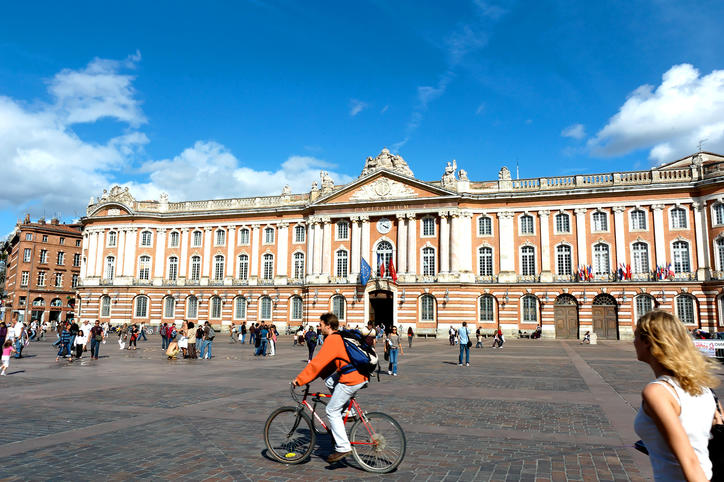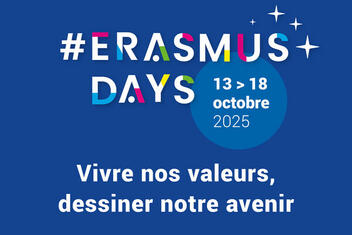
In France, all university cities are attractive!
All cities in France are attractive! This what the new ranking recently published by the L’Etudiant magazine says about university cities in France. This year, Toulouse wins the first position, while Lyon and Rennes both share the second place.
Depuis une quinzaine d’années, le magazine et le site internet de L’Etudiant publient un classement général des villes universitaires françaises. Ce classement, qui est un standard en la matière, réserve peu de surprises d’une année à l’autre. Ce sont plutôt les grandes villes étudiantes en région qui sont plébiscitées. Les villes préférées des étudiants se repartissent partout sur tout le territoire et sont toutes des centres de formation et de recherche importants. Au total, ce sont 43 villes françaises, grandes, petites ou moyennes, qui ont été observées sur la base de cinq grands critères : formation, attractivité, emploi, cadre de vie et vie étudiante.
La prime aux métropoles dans le classement général
Dans le Top 10 de cette édition, Toulouse, Lyon et Rennes (ex-aequo) se partagent donc les trois premières marches du podium. Viennent ensuite Strasbourg, Montpellier, Nantes, Grenoble, Bordeaux, Paris et Aix-Marseille.
Cette année encore, les villes les plus attractives sont des villes d’au moins 200 000 habitants et qui accueillent environ 40 000 étudiants (sauf Grenoble). Comme l’écrit d’ailleurs L’Etudiant, "les métropoles continuent de régner sur le classement même si les grandes villes jouent des coudes". Pour L’Etudiant, si "les métropoles continuent d'attirer de nombreux étudiants notamment internationaux », c’est "grâce à leur rayonnement culturel ou le dynamisme des animations proposées". Pourtant, poursuit le site, les villes moyennes ou les grandes agglomérations "regorgent aussi d'atouts : leurs loyers sont plus accessibles, la densité de l’offre de formations y est bonne, et les taux de passage en L2 y figurent parmi les meilleurs de France".
Trois classements par type de ville universitaire
C’est pourquoi L’Etudiant a réalisé en plus cette année trois autres types de classements qui comparent uniquement les villes de même taille, c’est à dire les métropoles, les grandes villes et les villes moyennes.
Du côté des métropoles, Toulouse, Lyon, Rennes sont les grandes gagnantes, comme dans le classement général, et le reste est assez semblable.
Mais si l’on observe le tableau des "grandes villes étudiantes", celles qui accueillent moins de 20 000 étudiants, on trouve dans les dix premières la ville de Poitiers, suivie des villes de Caen, Dijon, Saint-Etienne, Orléans, Brest, Tours, Besançon, Limoges et Reims.
Dans la catégorie des "villes moyennes" enfin, le Top 10 s’établit comme suit : la ville de Pau arrive en tête, suivie de Chambéry, La Rochelle, Le Mans, Mulhouse, Arras, Nîmes, Toulon, Le Havre et Valenciennes.
Le chamboule-tout du classement étudiant
Pour compléter ces quatre classements, L’Etudiant a sollicité les étudiants via un sondage sur les réseaux sociaux pour participer à un questionnaire destiné à élire la "ville étudiante coup de cœur". Dix critères ont été établis : du logement à l’ambiance générale de la ville, en passant par la vie culturelle ou sportive ainsi que l’environnement. Mais au fond la question reste simple : recommanderiez-vous cette ville à un autre étudiant ? Et là, tout change ! C’est Strasbourg qui remporte l’adhésion des étudiants avec un taux de 98,98% de recommandation. Avec un taux légèrement plus bas (autour de 97,5%), viennent ensuite La Rochelle, Lille, Rennes, Toulouse, Lyon, Clermont-Ferrand, Caen, Angers et Dijon.
Les 50 Fiches Ville de Campus France pour se faire sa propre idée
Au milieu de tous ces classements qui montrent que toutes les villes de France sont attractives, il ne reste que les Fiches Villes, réalisées par Campus France, pour se faire sa propre idée !
Destinées en premier lieu aux étudiants internationaux, ces fiches d'information ont été éditées pour la première fois en 2015. Depuis lors, elles sont mises à jour régulièrement et constamment enrichies. Chaque fiche répertorie les services et fournit les informations pratiques dont un étudiant international a besoin pour organiser son arrivée et effectuer ses démarches administratives une fois arrivé en France. Elles donnent également des indications sur les activités culturelles, sportives et associative dans la ville choisie. Disponibles en français, en anglais et en espagnol ,elles couvrent cinquante villes universitaires, y compris en Outre-mer.
Recommended News




















































